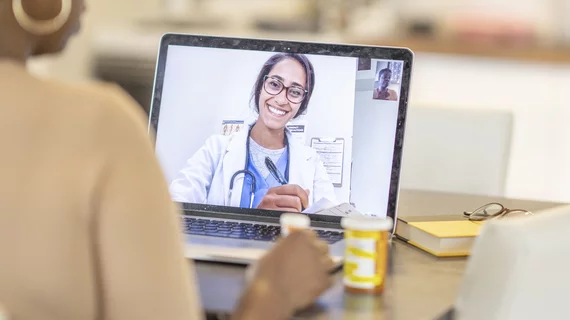Radiology faces ‘extraordinary opportunity’ as pioneer of modernizing medical education
An overwhelming number of radiologists say their specialty is tailor-made for online teaching, which they believe should become more prominent after the pandemic, according to a new international survey.
Students and teachers have long expressed a desire to innovate in medical education, yet few medical schools have adopted online-based concepts. The pandemic forced radiologists to reconsider their approaches, and many specialists are on board for long-term change.
In fact, 91% of the more than 200 radiologists surveyed around the globe said the field is well-suited for online teaching. And 73% said virtual learning should become a mainstay after COVID-19, the authors reported Tuesday in Insights into Imaging.
The respondents did note potential downsides related to workloads and social isolation, but the findings are the first to show the field holds an open mind toward online learning.
“As developing, implementing, and improving innovative techniques is at the heart of radiology, we are convinced that the current situation creates an extraordinary opportunity for radiology to become a pioneer in modernizing medical education,” Fabian Stoehr, with the Department of Diagnostic and Interventional Radiology at University Medical Center of the Johannes Gutenberg-University Mainz in Germany, and co-authors added.
The responses were gathered via a cross-sectional internet survey of 224 radiologists from 31 different countries. Stoehr et al. sent questionnaires to members of the European Society of Radiology and academic radiologists through social media between December 2020 and February 2021.
Among those surveyed, 89% said lecturers should become familiar with online teaching techniques. Participants also believe radiology is capable of incorporating more online teaching programs, with only 12% doing so before the pandemic compared to 88% during. Respondents favor a 50-50 mix of online versus in-person teaching.
Radiologists undertaking virtual teaching did note a few downsides. For one, 59% reported preparing courses increased their workload, 56% had problems motivating students to participate and 71% found it increased social isolation risks.
Lectures and seminars were considered well-suited for online classes, but not practical training, such as endovascular simulator training, the authors found.
Going forward, the authors believe radiologists can reflect back on 2020 and become leaders in reshaping education.
“The pandemic has forced the whole medical community to rethink the processes of learning and the best ways to impart knowledge to medical students,” Stoehr et al. added. “Thus, we are convinced, after the pandemic is over medical education will have changed substantially.”
Read the full study here.

